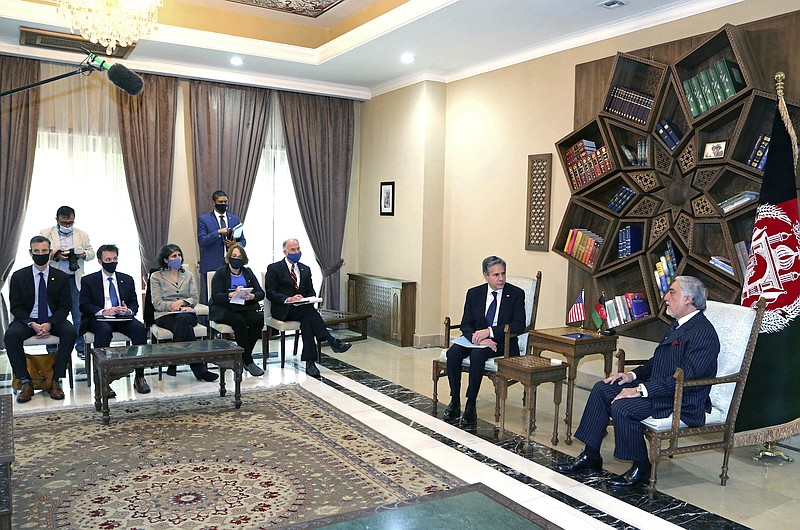I once boarded a flight from Dubai, United Arab Emirates, to Kabul, Afghanistan, alongside a team of Afghan soccer players - teenage girls in red uniforms, chatting and laughing much as they might have anywhere else in the world. I thought of those players again after President Joe Biden announced plans for America's complete military withdrawal from Afghanistan.
I hope they have the means to get out before the Taliban take over again, as sooner or later will most likely happen.
The United States did not go into Afghanistan after 9/11 to improve the status of women. We did so anyway. Millions of girls, whom the Taliban had forbidden to get any kind of education, went to school. Some of them became doctors, entrepreneurs, members of Parliament.
Those women are now being abandoned. So is every Afghan who struggled to make the country a more humane, hospitable, ethnically and socially tolerant place - some by taking immense personal risks to help U.S. troops, diplomats and aid workers do their jobs. As George Packer writes in The Atlantic, there are some 17,000 such Afghans waiting for the wheels of U.S. bureaucracy to turn so they can get their visas.
If Joe Biden wants to distinguish his immigration policy from that of his predecessor, he should sign an executive order to grant every one of those visa applications. Quickly. It would lift the death sentence that now lies on their heads. And it would send the useful signal that helping America when America asks isn't the dumbest thing a person can do.
There's a rational argument to be made that the United States went into Afghanistan to serve our national interests, coldly considered, and not the needs of an impoverished country of nearly 40 million people. Foreign policy is ultimately about self-interest, not the interests of others.
But what was the American interest in staying in Afghanistan beyond the fall of the Taliban? It wasn't, centrally, to kill Osama bin Laden, who was just one in a succession of terrorist masterminds. It was to prove bin Laden wrong about America's long-term commitments, especially overseas.
In August 1996, bin Laden issued his notorious fatwa declaring a war on the United States that he hoped would be long and bloody. He observed that, in one conflict after another, the Americans always cut and run.
The attacks of Sept. 11 were a direct consequence of that observation. That's why Barack Obama was right when, during his first campaign for the presidency, he called Afghanistan "a war that we have to win." To lose would just demonstrate our weaknesses and powerlessness.
The rejoinder is that we can't endlessly fight other people's wars for them, especially when we have to shift our strategic focus to competitors like Russia and China.
Should Ukrainians - who now face 150,000 Russian military troops massing on their border - find comfort in the looming Afghan pullout? What about Taiwanese, facing increasing belligerence from Beijing?
There's a view that to ask Afghans to fend for themselves after 20 years of American sacrifice shouldn't be seen as unreasonable. But foreign policy is also about dealing with the world as it is, not as we wish it would be. In the wished-for world, Afghan leaders wouldn't be inept, Afghan women wouldn't be in increased peril, the Taliban would have severed their links to international terrorists, and what the U.S. did in one corner of the world would have no bearing on how it's seen elsewhere.
In the world as it is, none of that is true, and we have to find a way of advancing our interests without betraying our values and our friends. Last week's calamitous decision on Afghanistan fails that test on every front.
The New York Times
